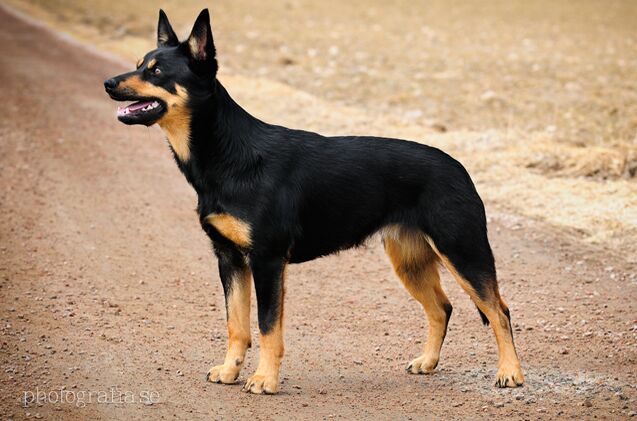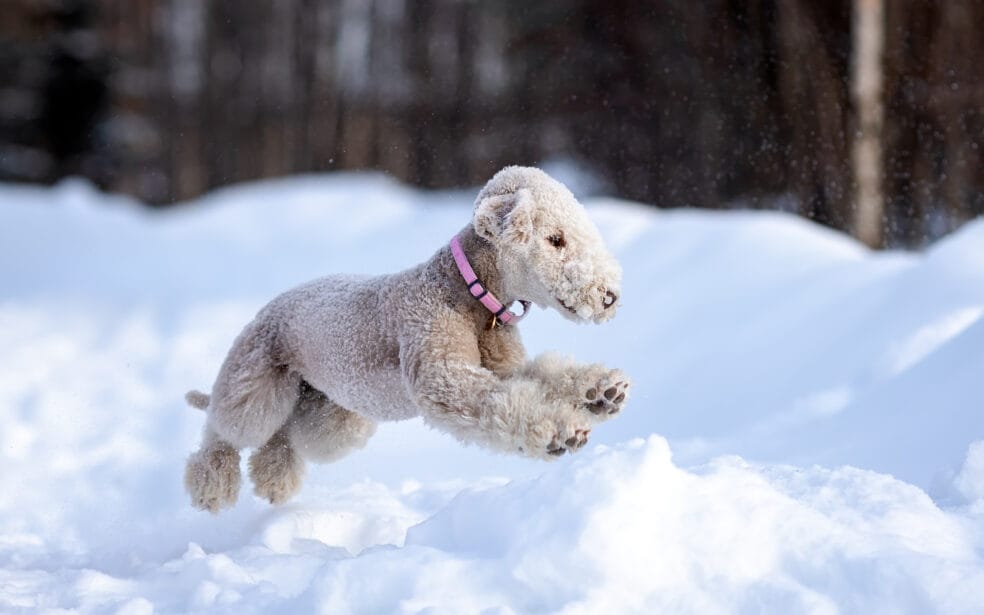
What Are the Basenji Dog Breed Characteristics and Care?
Share
The Basenji dog breed characteristics and care are essential for any health-conscious pet owner looking to welcome this unique dog into their home. Renowned for their striking appearance and captivating personality, Basenjis are indeed a breed like no other. Known as the 'barkless dog' due to their unique vocalization, they have a rich history and distinct behavior that set them apart from typical canine companions.

History and Origin of the Basenji
The Basenji has a long-standing history that can be traced back to Central Africa. This breed was originally utilized for hunting and was favored by the Congolese for its agility and intelligence. Over time, the Basenji became a beloved family pet, cherished for its unique traits and playful nature. As health-conscious pet owners, understanding a breed's history is crucial; it allows for a deeper appreciation of their needs and behavior.

Physical Characteristics of the Basenji
One of the standout features of the Basenji is its athletic build. Typically, a Basenji stands between 16 to 17 inches tall at the shoulder and weighs between 22 to 24 pounds. Their short coat comes in a variety of colors, often found in shades of brindle, black, chestnut, and even white markings.
Another notable characteristic is their tightly curled tail, which adds to their charming appearance. Observing these traits helps health-conscious owners ensure their Basenji remains in optimal condition through proper diet and exercise.

Personality and Temperament
The Basenji is a highly energetic dog with acurious and playful disposition. These dogs are known to be intelligent and sometimes independent, which may present challenges during training. However, once properly cared for, Basenjis can be incredibly affectionate companions. As a health-conscious pet owner, it is vital to provide your Basenji with socialization and mental stimulation to enhance their well-being and prevent boredom-related issues.
Training Tips for Basenji Owners
Training a Basenji can be a rewarding experience, as they are quick learners but can also have a stubborn streak. Here are some tips for success:
- Positive Reinforcement: Use treats and praise as rewards to encourage good behavior.
- Consistency: Maintain a consistent routine during training sessions for better results.
- Short Sessions: Keep training sessions brief and engaging to hold their attention.
- Socialization: Regularly expose your Basenji to new environments and experiences.

Health Concerns and Care Requirements
Owners must remain vigilant about certain health issues identified in Basenjis, such as hip dysplasia, eye disorders, and fanconi syndrome. Regular veterinary check-ups and health screenings are essential to catch any potential issues early on. A well-balanced diet rich in nutrients, as well as consistent exercise, is critical in supporting their overall health.
Diet for Basenji Dogs
To maintain an optimal weight and energy level, offering a high-quality dog food formulated for their specific needs is vital. Portions should be controlled, given their tendency to gain weight. Include fresh fruits and vegetables as occasional treats to ensure a well-rounded diet. Always consult your veterinarian before making significant changes to their diet.
Grooming Essentials for Basenjis
The Basenji has minimal grooming needs due to its short coat. Regular brushing is encouraged to remove loose hair and promote a healthy coat. Moreover, regular dental care, nail trimming, and ear cleaning are integral to their grooming routine. Health-conscious owners find it beneficial to establish a regular grooming schedule to catch any issues early.
Exercise Needs of a Basenji
Due to their high energy levels, Basenjis require ample physical activity. Daily walks, playtime, and interactive games can help meet their exercise needs effectively. Engaging them mentally can also keep them happy and healthy. If left alone and bored, they may resort to destructive behaviors. Ensuring that your Basenji is adequately exercised ultimately leads to a happier, healthier pet.
Common Behavioral Traits
Basenjis are known to exhibit unique behavioral traits that owners should be aware of:
- Independent: They can be quite independent, leading to potential stubbornness.
- Escape Artists: Their curious nature makes them skilled at escaping enclosures.
- Vocalization: Instead of barking, Basenjis communicate with a unique yodeling sound.
- Affectionate: They are deeply affectionate with their families and enjoy being part of the action.
Finding the Right Basenji for You
When deciding to add a Basenji to your family, consider adopting from a reputable rescue organization or breeder. It is important to ask questions about a Basenji's history and temperament. Visit [American Kennel Club](https://www.akc.org/dog-breeds/) for insightful resources regarding reputable breeders.
Conclusion
The Basenji dog breed characteristics and care include diverse elements that combine to create an affectionate, energetic, and intelligent companion. Understanding their unique traits, grooming, exercise, and nutritional needs will help health-conscious pet owners cultivate a loving relationship with their Basenjis. By integrating their companionship into your lifestyle, you will not only have a loyal friend but also contribute to the overall well-being of your pet.
FAQs
- How long do Basenjis typically live? Basenjis typically live between 12 to 16 years.
- Are Basenjis good for first-time dog owners? Basenjis can be challenging for first-time dog owners due to their independent nature. Prior training experience is beneficial.
- Do Basenjis bark? No, Basenjis are known as 'barkless dogs,' and they produce unique sounds instead of barking.
As an Amazon Associate, I earn from qualifying purchases.
